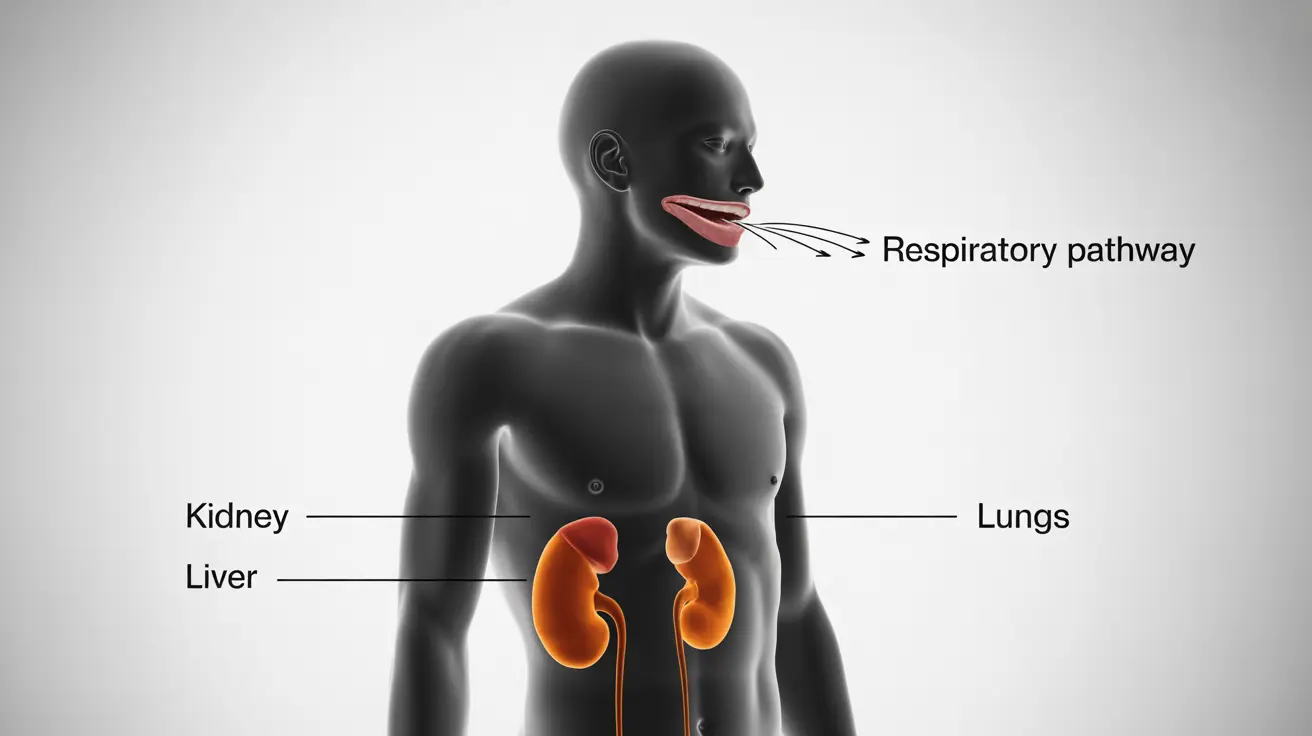When your breath develops an unusual odor similar to urine, it can be both concerning and embarrassing. This distinct smell, often described as ammonia-like or urine-like, may signal underlying health conditions that require medical attention. Understanding the causes and available treatments is crucial for maintaining both oral and overall health.
While good oral hygiene is essential, a urine-like breath odor often stems from systemic health issues rather than poor dental care alone. Let's explore the various causes, when to seek medical help, and effective ways to address this concerning symptom.
Common Medical Conditions Causing Urine-Like Breath
Several medical conditions can lead to breath that smells like urine:
Kidney Disease
When kidneys don't function properly, they may fail to filter waste products effectively. This can lead to a build-up of urea in the blood, which breaks down into ammonia, causing a urine-like smell in breath.
Liver Disease
Liver dysfunction can result in the accumulation of toxins in the body, including substances that create distinctive breath odors. When the liver can't process certain compounds effectively, they may be expelled through breath, resulting in unusual odors.
Uncontrolled Diabetes
People with poorly managed diabetes may experience ketosis, where the body breaks down fat for energy instead of glucose. This process can produce ketones, which may cause breath to smell similar to acetone or urine.
Dietary and Lifestyle Factors
High-Protein Diets
Following a very high-protein diet or ketogenic diet can lead to increased protein breakdown, potentially causing ammonia-like breath. This occurs when the body processes large amounts of protein, producing amino acids that can affect breath odor.
Dehydration
Insufficient fluid intake can concentrate waste products in the body, potentially leading to stronger breath odors. Staying well-hydrated helps flush toxins and maintain proper oral health.
When to Seek Medical Attention
It's important to consult a healthcare provider if:
- Your breath consistently smells like urine despite good oral hygiene
- You experience additional symptoms like frequent urination or unusual fatigue
- The odor persists for more than a few days
- You have unexplained weight loss or increased thirst
Treatment Approaches and Solutions
Addressing breath that smells like urine typically involves:
Medical Evaluation
A healthcare provider may recommend blood tests, kidney function tests, or liver function tests to identify underlying causes.
Lifestyle Modifications
Simple changes can help improve breath odor:
- Maintaining proper hydration
- Practicing excellent oral hygiene
- Balancing protein intake
- Regular dental check-ups
Frequently Asked Questions
What are the common medical conditions that cause breath to smell like urine?
The most common medical conditions include kidney disease, liver dysfunction, and uncontrolled diabetes. These conditions can affect how the body processes waste products, potentially leading to unusual breath odors.
How can kidney or liver disease lead to a urine-like odor on the breath?
When kidneys or liver function is impaired, waste products like urea can build up in the bloodstream. These substances break down into ammonia-like compounds that are expelled through breath, creating a urine-like smell.
What dietary habits or infections might cause breath to smell similar to ammonia or urine?
High-protein diets, ketogenic diets, and severe dehydration can contribute to ammonia-like breath odors. Some infections affecting the respiratory tract or sinuses may also cause unusual breath odors.
When should I see a doctor if my breath smells like urine despite good oral hygiene?
Seek medical attention if the odor persists for more than a few days, is accompanied by other symptoms, or if you have underlying health conditions like diabetes or kidney problems.
What treatments or home remedies can help reduce breath that smells like urine?
Treatment depends on the underlying cause but may include staying well-hydrated, maintaining good oral hygiene, adjusting dietary protein intake, and addressing any underlying medical conditions under healthcare provider supervision.




